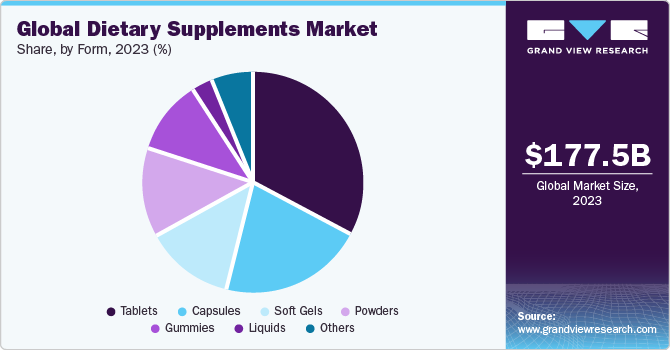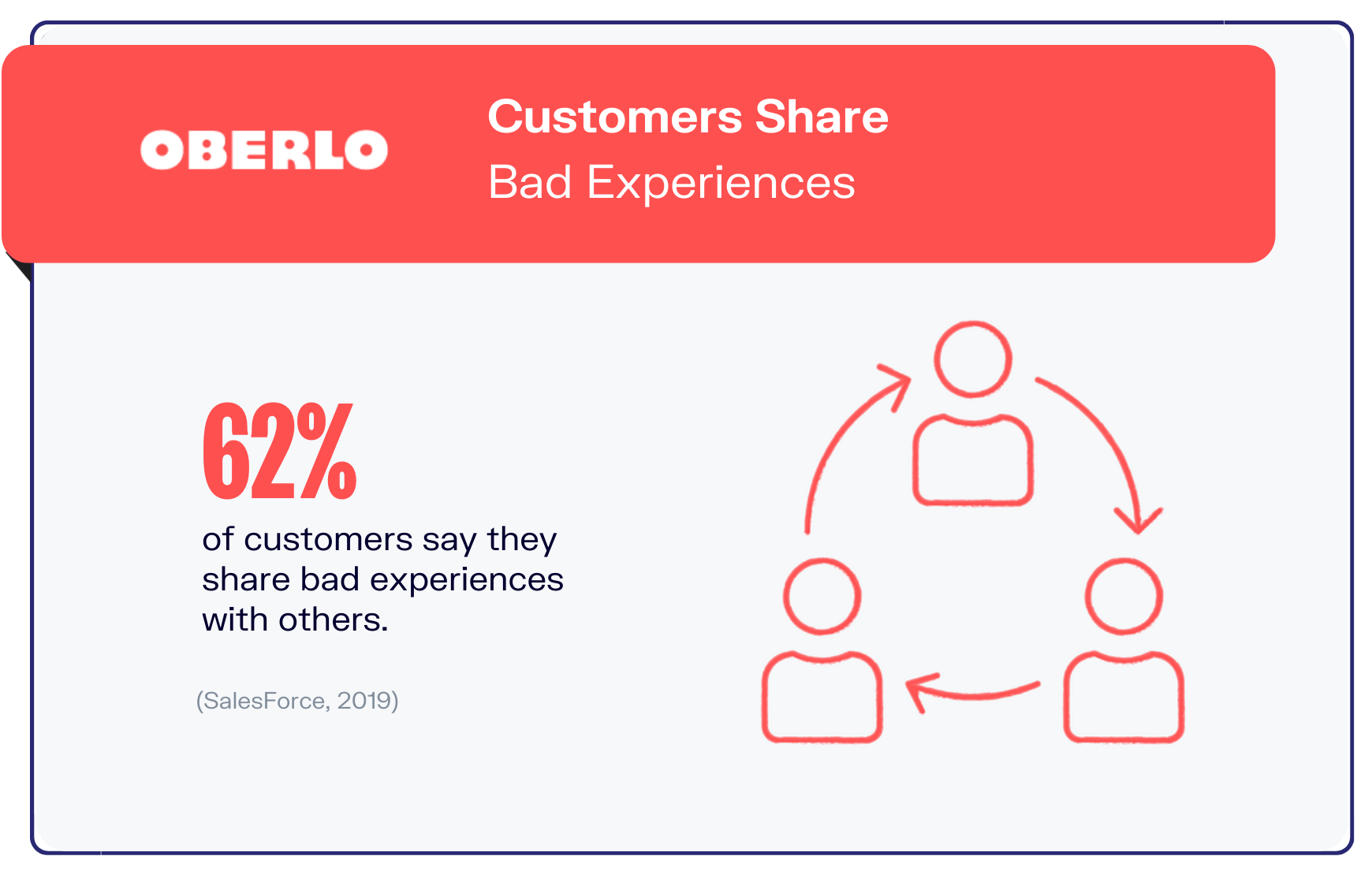The global dietary supplements market is projected to reach $221.37 billion by 2028 according to industry analysis. With more consumers becoming increasingly health-conscious and seeking preventative healthcare options, the demand for vitamins, minerals, herbs, and other nutritional supplements continues rising.

From research and development to manufacturing and marketing, building a successful supplement business requires thorough planning and solid execution across various functional areas. Factors like competitive differentiation and compliance with evolving regulations need to be mapped out from the start.
This guide will help you learn how to start a supplement company. Topics include competitive analysis, customer focus, accounting processes, business insurance, forming a legal business entity, registering for your EIN, and more.
1. Conduct Supplement Market Research
Market research is an integral part of starting your own supplement company. It provides valuable details about your target market, trends among dietary supplements, and local market saturation information.

Some other information you’ll see as you learn how to start supplement company market research includes:
- Driving the growth are supplements supporting joints, heart, digestion, and immunity.
- Rising demand exists for sports nutrition, weight loss, beauty supplements targeting skin/hair/nails, and supplements tailored for women, seniors, and children.
- On average, consumers take 4 supplements per day and spend $50 monthly.
- Digital ads, influencers, and healthcare providers most impact purchase decisions.
- For entrepreneurs starting, niche opportunities exist by focusing product lines on emerging segments like beauty, pets, or common health concerns that receive minimal mainstream attention currently.
- Strategic differentiation can be achieved through creative delivery formats like gummies, functional beverages, and personalized supplement packs.
- Further value can be provided by emphasizing transparency, clean labels, sustainable sourcing, and recycling/reuse programs to attract eco-conscious consumers.
- Adaptability and perseverance will be vital in this hypercompetitive space overflowing with innovative startups and sophisticated giants.
- The personalization mega-trend and unmet customer needs around holistic preventative health create an open playing field for differentiated offerings.
- The time is ripe for passionate founders to carve out market share.
While intensely competitive, the thriving global supplement industry presents diverse prospects for new entrants. By pairing data-driven flexibility with dietary supplement expertise and strategic partnerships, your own supplements can grow to meet evolving customer needs.
2. Analyze the Competition
A thorough competitive analysis is crucial when opening your own dietary supplement company. For potential brick-and-mortar locations, tools like Esri’s Mapper allow geospatial mapping of target demographics, spending habits, and proximity to major retailers in an area.

Online, tools like SEMrush, Ahrefs, and Alexa detail the digital visibility, traffic sources, keyword rankings, backlinks, and engagement metrics of rival brands. Monitoring competitor content calendars provides intelligence on upcoming campaigns, while TalkWalker surveys social conversations and reviews revealing customer sentiment, unmet needs, and brand perceptions.
Experimenting on platforms like Google and Facebook Advertising Manager yields competitor ads data across channels. Built With scan sites for key technologies implemented by leading players. While more manual, compiling competitor exec/advisor LinkedIn profiles gives perspective on leadership expertise.
Continuously analyzing multiple competitors across these dimensions empowers strategic differentiation. Key blindspots can be detected, such as underserved customer segments, transitional website elements impairing conversion, higher-performing marketing channels, or operational bottlenecks obstructing scalability.
Startups can pivot to seize these opportunities through sharpened value propositions, enhanced digital presence and customer experience, differentiated community building, solid scientific foundations, and strategic partnerships filling capability gaps vis-à-vis established players.
Ongoing competitive intelligence informs strategy and product development. Though time and resource-intensive, these efforts enable new supplement brands to continually strengthen their market position.
3. Costs to Start a Supplement Business
When starting a supplement brand, initial investments often range from $50,000 to $500,000 depending on the scope of manufacturing, variety of products, and channels targeted.
Start-up Costs
- Research & Development: Creating effective, safe formulas requires rigorous testing and refinement. Budget [$15,000-$150,000] for scientists, lab work, clinical studies, and consulting fees.
- Incorporation & Licensing: Legally establishing the business entity through SEC incorporation filing ($200) and registering for necessary state licenses ( $50-$500) and FDA supplements facility registration ($500).
- Product Certifications: Depending on claims, third-party certifications like USDA Organic ($500-$4000), NSF ($1000-$5000/product) and cGMP (typically $2500) build credibility.
- Inventory & Equipment: Minimum batches for inventory production, capsule machines, blenders, and bottling equipment [$5000-$500,000]. Storage space may also require leasing commercial warehouse space [$1000/month].
- Brand Building: Website development, branding, and packaging design, initial sales collateral, and product photography [$5000-$50000].
- Initial Marketing Activities: Launch campaigns across search, social, influencers, and potentially stores/distributors [$5000-$500,000+ based on distribution ambitions].
Ongoing Costs
- Rent and Utilities: Brick-and-mortar locations if applicable [$1000-$15,000]
- Staff and Contractors: Likely starting with contract scientists, marketing, sales, and operational freelancers/agencies [$5000+] with the potential to hire key management later [+$80,000/yr].
- Cloud Services and Software: Managing sales, inventory, accounting, taxes, email marketing, data analysis, etc. [$100-$500+]
- Raw Ingredients: Sourcing high-quality inputs for production (oftentimes imported) [$1000/$batch]
- Production: Contract manufacturing or leasing a dedicated facility [$5-$20/unit or Mortgage $5000-$25,000/month]
- Quality Assurance: Ongoing safety and purity testing [$100-$5000/mo]
- Marketing and Distribution: Maintaining brand visibility and expanding sales channels [5-15% of revenue]
- Yearly costs potentially include Facility audits [$2000-$10,000] and legal fees [$5000-$50000] for ongoing FDA/FTC compliance and claims substantiation. Reformulation upgrades [+$5000], new product development [$25,000 per], and recertifications maintain competitiveness.
4. Form a Legal Business Entity
Before running a business in the United States, business owners must first form a legal business entity. When starting a supplement brand, the legal structure carrying the least personal liability risk is an LLC (Limited Liability Company). Let’s take a look at the four main structures available to you.
Limited Liability Company (LLC)
LLCs limit financial exposure. They also involve less paperwork than corporations with simpler profit distributions via “pass-through taxation”. LLCs support multiple owners through flexible membership share allocation. These protections incentivize entrepreneurial risk-taking helpful for gaining an initial supplement foothold.
Sole Proprietorship
Sole proprietors must fund all start-up costs personally and directly assume company liabilities – dangerous in an FDA-scrutinized industry. While simpler administratively, credibility struggles may arise without an entity name. These structures are designed for a single owner, or a married couple owning a business together.
Partnership
Partnerships poorly protect partners beyond their capital invested across unlimited liability. While profits pass directly to personal returns, conflict risks around ownership percentages, work divisions, or exit strategies may fracture even the strongest friendships amid supplements launching stressors.
Corporation
Forming a corporation creates a distinct legal entity insulating owners from obligations. Shareholders only hazard their investments. Perpetual existence persists despite leadership transitions. Formally issued stock facilitates venture capital and private equity financing to accelerate growth. Extensive incorporation paperwork required board decisions and rigorous meeting/records rules.
5. Register Your Business For Taxes
Even sole proprietors must obtain an Employer Identification Number (EIN) when starting a supplement company. An alternative to using one’s Social Security number, EINs uniquely identify business entities for tax administration purposes. Supplement brands require an EIN to open business bank accounts, file taxes, and pay employees.
Registering takes under 15 minutes through the IRS’s EIN Assistant. Simply confirm eligibility and answer some basic questions about the business structure chosen back when legally forming the supplement entity. Have owner names, addresses, and Social Security numbers ready. After submitting, an EIN is immediately assigned to use for life administrative and tax situations related to the business.
Beyond federal EIN registration, supplement founders must understand sales tax obligations in their home state based on nexus triggers like inventory locations or employee presence. Sale tax IDs enable charging, collecting, and remitting state sales tax on supplement transactions.
Both EIN and sales tax ID registration are free. However, ignorance of reporting, filing, and payment rules risks steep Penalties from rupture audits or miscalculations. Consider outsourcing sales tax management to experts like TaxJar to simplify compliance across state lines as supplement sales grow.
Establishing proper legal business formation, federal tax identity through an EIN, and sales tax obligations comprises the essential administrative foundation for a compliant supplements venture. With this fiduciary infrastructure set early on, entrepreneurs can redirect focus to developing revolutionary formulas, crafting resonating brands, and reaching consumers seeking healthier lifestyles.
6. Setup Your Accounting
With intricate manufacturing processes, multi-ingredient sourcing, inventory management, and sales across various channels, supplement companies generate copious financial transactions. Without tracking these data points, founders struggle to estimate taxes owed.
Accounting Software
Hence utilizing accounting software like QuickBooks creates organization. Automatically integrating sales receipts, purchase invoices, bank/credit card activity, etc centralizes financial information. Data sorting and reporting simplifies filing quarterly estimated payments and annual tax returns. QuickBooks even facilitates creating customized invoices and sales orders representing supplement business processes.
Hire an Accountant
Beyond software, engaging an accountant optimizes financial leadership. Year-round bookkeeping assistance properly logs transactions. Quarterly/annual financial statement preparation communicates profitability snapshots to founders and potential investors. Accountants also ensure full IRS rule compliance regarding expense deductibility.
Open a Business Bank Account
Entrepreneurs should establish separate business bank accounts. Commingling personal and supplement company finances muddles recordkeeping. Business accounts better partition finances for transparent reporting. They also build credibility when applying for loans, credit cards, and merchant processor accounts necessary for operational growth.
Apply for a Business Credit Card
Business cards consider factors like business age, revenue, and personal credit data via owners’ SSNs. Maintaining timely payments helps secure higher credit lines for covering large-scale ingredient purchases or marketing campaigns. Consider cards for supplement companies like Nav offering generous rewards on common purchases.
7. Obtain Licenses and Permits
Before selling any products, supplement companies must register with the FDA acquire a dietary supplement manufacturing license, and more. Find federal license information through the U.S. Small Business Administration. The SBA also offers a local search tool for state and city requirements.
Central is the FDA’s food facility registration legally requiring supplement makers to provide company details for inclusion in their public database supporting safety oversight. Thankfully registration costs just $500 and is completed online via Form 3537.
Another key submission is the FDA’s New Dietary Ingredient (NDI) notification which tracks evidence supplements contain ingredients marketed pre-1994. Preparing an NDI application without an attorney risks rejection and corrective action. Thus entrepreneurs should budget $5000 for scientific and legal guidance guaranteeing FDA acknowledgement of next-gen formulas.
Registering with the NSF Certified for Sport program verifies supplements undergo rigorous toxicity screening and production facility audits checking for 200 banned substances. With testing fees of $1000-$5000 per product and yearly site visits, certification requires significant investment.
State licenses also apply based on warehouse locations and sales territories. Manufacturing permits cost $50-$500 depending on the state. Special sales tax IDs must be distributed wherever supplements are sold. Skirting state rules risks thousands in fines per violation.
Though exhausting administratively, properly licensing supplement operations protects customers and gives emerging brands credibility against established players with familiar credentials. Once registered with the FDA, NSF, and across operating states, companies gain the freedom to focus energy on product innovation and marketing outreach encouraging healthier living.
8. Get Business Insurance
Even with rigorous quality control, companies in the dietary supplement industry remain vulnerable to existential threats from unforeseen events. Business insurance financially compensates unexpected losses protecting hard-built operations. Policies cover expenses to resume operations quickly after incidents.
Without coverage, scenarios like ingredient supplier fraud, utility failures halting manufacturing, or product recalls from containment issues could bankrupt unprotected brands. Additionally, buyer injury lawsuits from alleged supplement side effects may claim hundreds of thousands in legal judgments.
Thankfully getting covered is straightforward. Quoting just requires details like supplement business type, number of employees, and revenue. Select tailored coverage options, and general liability against injury lawsuits is essential. Bundle attractive discounts and lower premiums.
Following the quote comparison, apply with the optimal insurer providing desired liability limits at affordable recurring premiums of around $1000-$5000 annually. Consider higher deductibles lowering monthly charges if cash reserves permit. Finally, pay for elected coverage via financing options like annual policies or monthly installments.
With protection secured, supplement entrepreneurs enjoy peace of mind scaling their brand and supporting customer wellness free from financial catastrophes. Regular policy reviews ensure adequate evolving coverage keeping pace with growth.
9. Create an Office Space
As supplement brands scale, centralized workspaces improve productivity and culture beyond remote teams. Offices are needed for administrative and behind-the-scenes work. As a supplement brand over, you have a few options to create an office for your own supplement line, including:
Home Office
Home offices minimize expenses, allowing new founders to funnel capital into research, manufacturing, and marketing their supplement. Converting spare bedrooms into functional spaces full of whiteboards and product samples costs little. However privacy concerns, unreliable internet, or distracting pets hamper operations once multiple employees join.
Coworking Office
Upgrading to coworking spaces like WeWork grants amenities like conference rooms, printing, events, and front desk service lacking privately. Choose shared or private offices to balance collaboration and concentration. With flexible leasing arrangements, teams scale into larger suites or downsize during slower months to control costs starting at around $350 monthly.
Retail Office
Supplement makers running or expanding brick-and-mortar retail stores could explore office spaces connected to locations. Storefront windows attract shopper interest while rear warehouses accommodate industrial uses. However long leases and regulations in prime retail centers complicate pivoting.
Commercial Office
For advanced supplement brands, stand-alone commercial buildings offer fully customized facilities from private executive spaces to expansive production floors. Expect to pay $25 per square foot within business parks. While costly requiring years of scaling first, owned buildings become valuable assets usable as collateral when seeking loans from banks to fund acquisitions or national expansion campaigns.
10. Source Your Equipment
To become a private-label supplement manufacturer, you need to source the right equipment to develop your supplements. There are a few ways to obtain the right tools, including:
Buy New
Launching a supplement brand relies on securing high-quality manufacturing and storage equipment, like blenders, tablet presses, sanitizers, moisture regulators, etc. Buying new enables custom orders tailoring performance and capacity to forecasted output. Consider CapPlus Technologies and Gencor for industry-leading machinery.
Buy Used
Scouring Craigslist and Facebook Marketplace may uncover commercial-grade supplement equipment at 40-60% discounts. Expect older or cosmetically flawed models missing the latest sanitization and monitoring technologies. Be sure to confirm maintenance records and independently inspect functionality before purchasing.
Rent
Seeking short-term supplemental capacity or backup emergency equipment? Rentals enable accessing robust machinery without huge capital outlays. EquipNet offers tablet presses and capsule fillers starting at around $1500 monthly. Scalability and seasonal flexibility make renting attractive for addressing sudden sales upticks without acquiring assets.
Lease
Equipment leases secure access to the newest supplement innovations across 36-60-month contracts. Drawbacks include perpetual monthly payments and ASC 842 asset capitalization requirements. However, $1 buyouts upon lease expiry allow ownership transfers of tested equipment with acquainted maintenance needs at attractive valuations.
11. Establish Your Brand Assets
Cultivating a recognizable brand identity earns customer trust, enabling supplement companies to uniquely fulfill desires for healthier living. Consistent logos, messaging, imagery, and experiences communicate the motivating vision behind formulations.
Get a Business Phone Number
Centralizing communications with a customized business phone number adds legitimacy beyond personal devices. Services like RingCentral provide toll-free and local numbers with call routing, voicemail transcriptions, analytics, and more from $30 monthly.
Design a Logo
Visual continuity starts with a sleek logo applied across touchpoints. For supplements targeting active consumers, consider lively emblem logos evoking movement or spartan lettermarks inspired by elite training. Brand asset platform Looka instantly generates options using AI, with unlimited high-quality downloads starting at around $65 monthly.
Print Business Cards
Business cards sporting logos introduce credible supplement founders and scientific advisors during trade shows, store meetings, and doctor visits. 500 premium cards from Vistaprint cost under $30. Handsome retail signage and displays trigger purchasing decisions for $50+ per item.
Buy a Domain Name
Securing matching domain names anchors digital experiences – facets supplement startup control, unlike social platforms. A “.health” top-level domain communicates specialization. Purchase via registrars like Namecheap for under $15 annually.
Design a Website
Either utilize website builder Wix to launch informative online storefronts yourself for $17 per month, or hire a designer on the global freelance network Fiverr to guide development for around $400. Both options enable showcasing products, scientific backing, healthy living content, and e-commerce functionality with branding continuity that website visitors appreciate.
12. Join Associations and Groups
Beyond online forums, local associations and events enable supplement founders to forge connections that unlock industry insights from fellow entrepreneurs, scientists, retailers, and investors.
Local Associations
Area economic development groups like the International Alliance of Dietary Food Supplement Associations. organize training detailing regulations or sales best practices for around $300 annually. Neighboring county health departments guide clinical trial partnerships with local universities to boost scientific backing for formulations.
Local Meetups
Attend relevant meetups facilitating open interactions using the event listing platform Meetup. The Nutraceutical Meetup Network features gatherings across 35 cities fostering idea exchanges around sourcing, manufacturing, and internet sales tactics between seasoned veterans and eager newcomers for under $50 per event.
Facebook Groups
Subscribers of targeted regional Facebook Groups access crowdsourced wisdom from fellow supplement experts daily. Supplement dietary & Tips for healthy weight loss and Sell your supplements @ Nutrition and wellness are good places to start. Share local partnership opportunities, marketing campaign results, or regulatory warnings that would otherwise require costly missteps to learn independently.
13. How to Market a Supplement Business
Marketing nutritional supplements drives discovery and ongoing brand connections. Beyond informing dietary supplement health benefits, marketing conveys supplement companies’ underlying raison d’être improving lives through preventative wellness and performance enhancement.
Promotional Marketing
New supplement founders should motivate satisfied buyers into loyalists. Offer 10-20% discounts for customers referring friends or leaving positive reviews showcasing products. Feature ecstatic testimonials prominently across packaging and digital channels. Prominently displaying how supplements support specialized nutrition also sparks further referrals and retention.
Digital Marketing
For digital marketing expansion, consider:
- Google/Bing Ads linking related searches around common health goals to relevant landing pages using GEO or demographic targeting
- Facebook/Instagram influencer partnerships aligned to supplement positioning like fitness, beauty/anti-aging, or mental clarity
- Optimized blog and YouTube content improving ranking for product keywords
- Retargeting via Google Display and Facebook to re-engage site visitors
- Affiliate marketing paying relevant sites and coders to promote products
Each digital tactic aims to drive conversions by intercepting audiences during need-state supplements. Testing varying creative, landing pages, and calls-to-action informs optimal channel resource allocation generating 7 times the ROI.
Traditional Marketing
Traditional options producing inconsistent returns include:
- Targeted radio spots or podcast ads timed around listening peak commutes when health is top-of-mind
- Print advertising in niche magazines aligned to nutrition, bodybuilding, running, etc
- Direct mail touchpoints including customer appreciation gifts, new product samples etc building rapport
- Outdoor signage or events sponsorship broadening exposure where target demos congregate
Though supplementary and unpredictable, traditional channels occasionally capture supplement buyers unreachable digitally. They also build brand familiarity and community connections – difficult-to-measure benefits that pay long-term dividends.
14. Focus on the Customer
Providing exceptional customer service distinguishes supplement brands amidst the competition, earning loyalty and referrals that fuel sustainable revenues. Studies show that 96% of customers with issues will stay loyal if companies quickly resolve complaints. This prevents abandoning products over isolated negative instances when overall efficacy and value remain.

Supplement users skewing older may require simplified usage instructions or ingredient safety explainers reaffirming appropriateness and correcting misperceptions. Younger demographics try various products seeking personalized regimens fulfilling specific training goals or wellness visions – patient guidance supplement brands can provide via chat widgets or online communities increasing helpfulness perceptions.
Expert assistance in product selection and clear expectations alignment also minimizes returns. Each refund risks forfeiting future sales. Worse, disappointed buyers vent online significantly influencing purchasing decisions across networks.
Conversely, smooth resolutions elicit appreciation. 71% proactively share great support experiences. For supplements, testimonials strike close to home given trusted friends similarly pursue fitness or anti-aging quests. This inherent social value makes prompt, individualized customer service an imperative, not just a nice-to-have.
